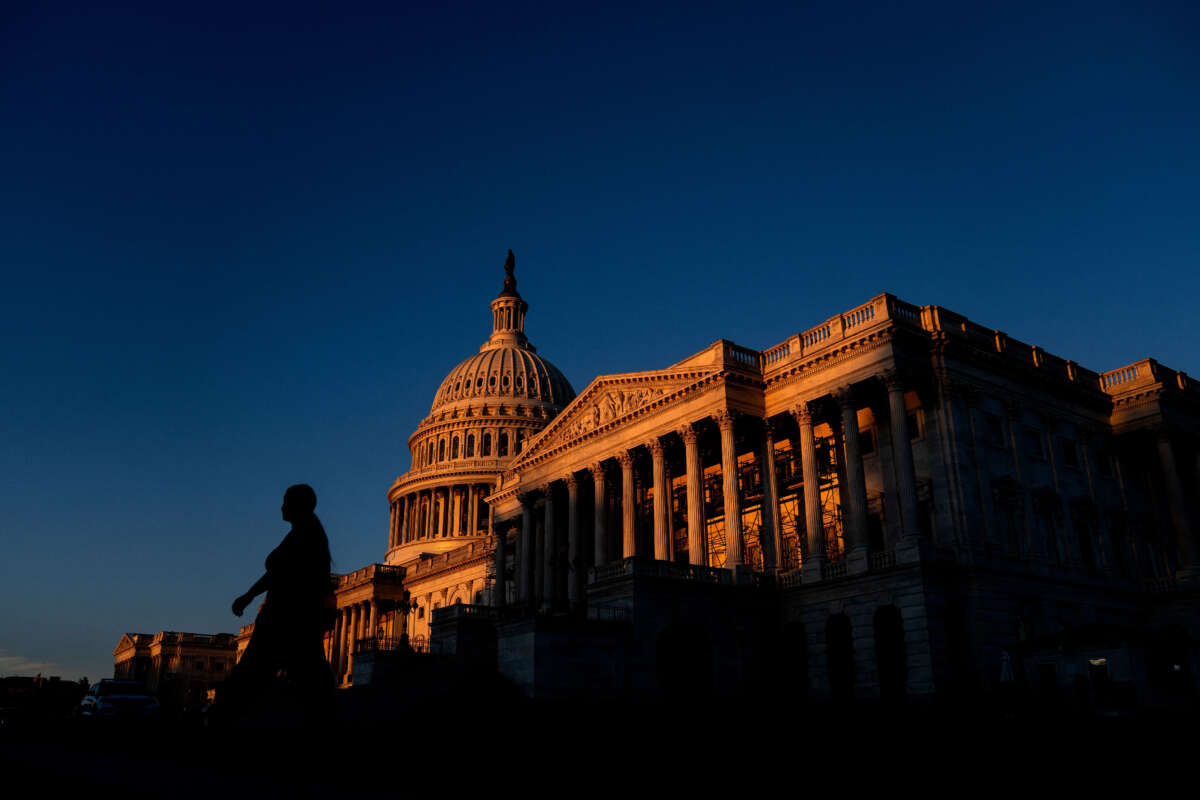Congressional lawmakers presented an year-end omnibus bill Tuesday that includes a set of election reforms crafted to make it harder for lawmakers to overturn presidential elections in response to January 6 — but advocates say it doesn’t go far enough to prevent further attacks.
The Electoral Count Reform and Presidential Transition Improvement Act proposes several amendments to the Electoral Count Act of 1887 to put in place several safeguards against rejecting or overturning valid election results.
The Act clarifies that the role of the vice president in certifying the election results is only ceremonial and raises the threshold for objections to the results from one member of the House and Senate to one-fifth of each chamber. It would also formally establish that there is one conclusive set of electors from each state, which aims to avoid the “fake electors” scheme that former President Donald Trump and his team had attempted to use to steal the 2020 election.
The proposal has bipartisan support in both chambers of Congress, including Senators Susan Collins (R-Maine) and Joe Manchin (D-West Virginia) and Rep. Liz Cheney (R-Wyoming). A version of the proposal passed the House in September largely along party lines, and the only chance for it to advance through Congress is in the must-pass government funding bill due to opposition from the Republican Party.
Voting rights advocates have praised the proposal as an “essential reform,” as Public Citizen Executive Vice President Lisa Gilbert, said in a statement.
“We celebrate the inclusion of the Electoral Count Act reforms following the January 6th Select Committee’s dramatic conclusion yesterday,” Gilbert said. “These important policies will help ensure that there is no longer ambiguity about the role of the vice president in certifying an election.”
“The just-released Senate approps bill contains the first reform to prevent another insurrection: eliminating ambiguities in the Electoral Count Act that were exploited by Trump et al to try to overturn the election,” said Wendy Weiser, vice president for democracy at the Brennan Center for Justice. “This is a critical step, and Congress should pass it ASAP.”
But advocates add that, while the reforms are necessary, they don’t go far enough to prevent another January 6 attack.
Legal experts pointed out in the Washington Post earlier this year, for instance, that 20 percent of both chambers is still a relatively low bar to clear — in the House, 139 Republicans voted against certifying the presidential election results in 2020, making up over 30 percent of the chamber’s representatives.
They also say that the Senate version of the legislation, which appears to be the version included in the omnibus bill, still allows for a “rogue” vice president to delay the certification of election results, which was Trump’s plan for Vice President Mike Pence.
The inclusion of the reforms comes just a day after the January 6 committee held what will likely be its final public hearing, in which it unanimously voted to refer criminal charges against Trump for his role in January 6 to the Department of Justice. The group is sending four charges to DOJ officials: one charge for obstruction, two charges for conspiracy and one charge for insurrection.
The group is also referring four House GOP lawmakers — House Minority Leader Kevin McCarthy (R-California) and Representatives Andy Biggs (R-Arizona), Jim Jordan (R-Ohio) and Scott Perry (R-Pennsylvania) — who refused to comply with subpoenas to appear before the committee to House ethics investigators.
The referrals come as Republicans continue to pass state bills that make it harder to vote. According to the Brennan Center, at least 10 voter suppression laws across seven states were passed this year, while state lawmakers considered at least 408 election restriction laws in 2022.
We have 10 days to raise $50,000 — we’re counting on your support!
For those who care about justice, liberation and even the very survival of our species, we must remember our power to take action.
We won’t pretend it’s the only thing you can or should do, but one small step is to pitch in to support Truthout — as one of the last remaining truly independent, nonprofit, reader-funded news platforms, your gift will help keep the facts flowing freely.
